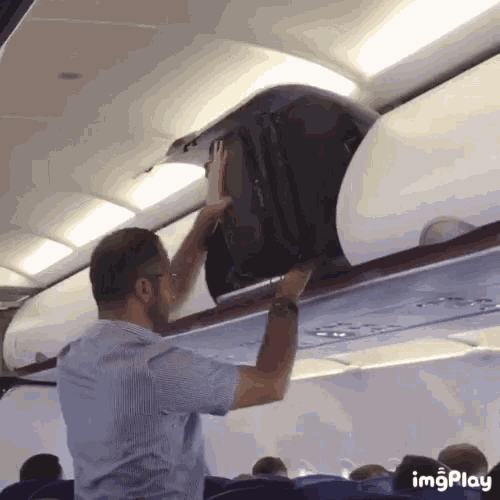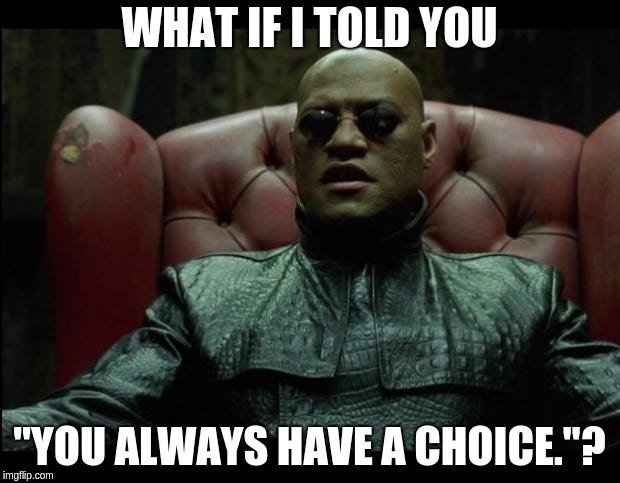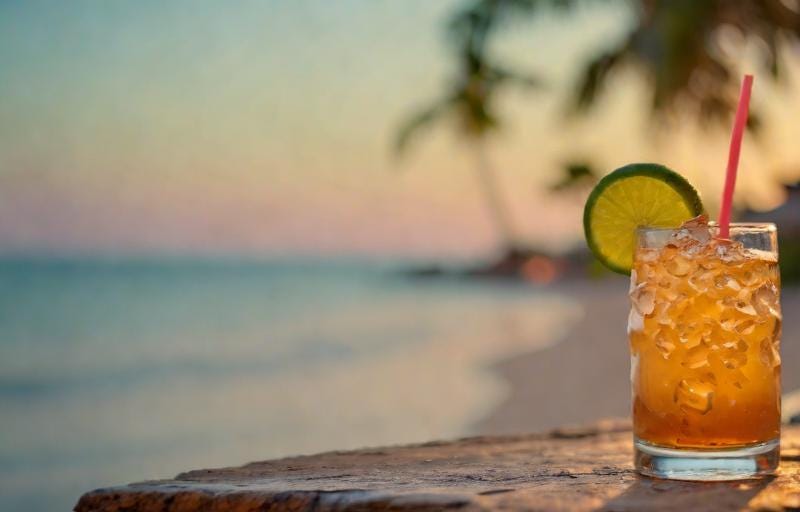For The Love Of Money
Airlines are now surge pricing checked baggage, with fees fluctuating based on travel dates. Read on for smart workarounds solo travelers can use to avoid high prices.

DISCLAIMER: Red Solo Traveler is a reader-supported publication. This page contains affiliate links and banners. If you choose to make a purchase after clicking a link, I may receive a commission at no additional cost to you. Thank you for your support!
A couple of months ago, Wendy's, the popular fast food chain, found itself caught up in a whirlwind of a public relations frenzy. During an earnings call, their President and CEO, Kirk Tanner, mentioned that they would be "testing dynamic pricing and day-part offerings." This statement immediately sparked speculation in the media, with many assuming it meant "surge pricing." However, Wendy's quickly clarified that they had no plans to implement surge pricing. Instead, they would be using digital menus to offer discounts during slower times of the day, while keeping the regular prices unchanged. This pricing strategy, known as "dynamic pricing," is commonly used in various industries, including supermarkets, fast food chains, and even ride-hailing services like Uber and Lyft, albeit to varying extents. Ultimately, it all boils down to choosing the right time. The travel industry also embraces dynamic pricing, especially when it comes to booking flights, hotels, and now, checking in baggage. JetBlue recently introduced dynamic pricing for baggage, similar to Wendy's approach with that Baconator. However, it's not as negative as it may seem. In fact, if you plan ahead and book in advance, you can actually save money! This principle applies to booking your entire trip as well. It's all about timing.
Booking Dot Yeah? More Like NO!
You've finally picked a destination, done your research, and planned out all the activities you want to do. But when you go to book your flights, you're hit with sky-high prices. This is where "dynamic pricing" or "surge pricing" comes into play. Keep in mind the timing of your trip - as a solo traveler, you may need to travel during off-peak times if you want to keep expenses low. It can be tricky if you have a job with limited vacation days, but it's doable. According to The Thrifty Traveler, it's best to book your flights first and plan the rest of your trip around that:
We call it The Flight First Rule. And it's exactly what it sounds like.
Instead of deciding on the dates of your trip before booking your flights, flip that familiar script on its head and start by searching for flights, letting the price guide you to the cheapest dates possible. It's all about being as flexible as you can be in order to save on flights – whether that's by traveling a month later, on a different week, or just by departing on a Tuesday instead of a Monday.
You might be shocked at how much you can save just by departing a day earlier or later than you initially planned … or by traveling during cheaper seasons, you could save even more.
It has been highlighted that Google Flights is a popular option for searching flights, however, there are alternative methods available. Various booking and airline websites provide "low fare calendars" which can be accessed by conducting a simple search using the keywords "low fare flight calendar". This search will yield multiple options allowing you to compare prices by airline or booking platform. Additionally, there are other platforms such as fly.com, SkyScanner, and FlightsFinder that can help you find affordable flights. The key takeaway is that there are numerous resources available to help you navigate high flight costs. It is important to keep in mind that as a solo traveler, you are responsible for covering the entire trip expenses. Therefore, saving money whenever possible is crucial, unless you have an unlimited budget!

Check My Bag? Check This!
Speaking of flights, let's talk about luggage for a moment. I recently wrote about how airlines have raised their baggage fees across the board, which has sparked a lot of discussion on how to deal with it. The surge in baggage fees adds another aspect to this conversation. However, just like when you book your flight, timing plays a role in deciding whether to check your bag in advance. According to Thrillist, there is a clever way to avoid the higher bag fees:
JetBlue's standard checked bag prices for off-peak flights are $45 for the first bag and $60 for the second bag (as long as you check your bags within 24 hours of your flight and are traveling within the US, Canada, Latin America, or the Caribbean, that is). If you do, however, fly under the same exact travel conditions but on a peak date, those bags will cost you respectively $50 and $70. Assuming you checked both bags, that's an extra $15, which makes it around a 14% increase from the original total price.
For transatlantic flights, it gets even worse. During peak dates, when checking the bag within 24 hours of the flight, the first checked bag is $70, while the second one is $115. Off-peak pricing under the same circumstances, instead, is $65 for the first bag and $110 for the second one.
We can all agree, then, that traveling during what the airline considers "peak travel dates" is not ideal if you are planning to bring a checked bag with you. But if you know when those dates are, you can always try to avoid them to save a few bucks.
One trick to save on these wild fees, however, is checking your bags more than 24 hours before your flight. This way, you can snag a $10 discount on the fees for both your first and second bag.
And JetBlue is not the only one. American Airlines also follows this practice. During my recent work trip to Scottsdale, AZ, I flew with American Airlines. I decided to add a checked bag while checking in for my flight, which I did a day before. Surprisingly, it was still $30. However, if I had waited until I reached the airport on an early morning without my coffee, I would have been charged $40. Normally, I avoid baggage fees when I fly with Delta by using my American Express Delta Skymiles card. As far as I know, Southwest Airlines is the only passenger airline that doesn't charge for bags. It's important to plan ahead and consider your preferences and what you're packing if you intend on checking your bag.

Hand In Hand
When it comes to planning your trip, making advance bookings for flights and your luggage can help you save money. This can also have an impact on your hotel or accommodations. While there's no definitive rule to prove this, airlines use supply and demand to sell seats, and it's likely that hotels follow a similar approach. After all, hotels aim to sell their rooms, just like airlines aim to sell seats. If flights are expensive, it's probable that your hotel will be too. Additionally, the number of hotels in a city can affect their pricing. Fortunately, you have alternatives to staying at a hotel. You can rent an apartment or house through platforms like AirBnb or Vrbo. Some hotel websites, like Marriott, even offer programs where you can rent residences and villas. Renting through AirBnb or Vrbo might be more affordable than hotels, but be cautious! Make sure to thoroughly research and read reviews. Even if there's a significant price difference, consider the amenities and potential rewards you might miss out on by booking elsewhere.

Final Thoughts
As a solo traveler myself, I frequently find myself engaging in these practices more often than I would like to admit, but it never fails to yield positive results. Going against the grain is key. The concept of dynamic pricing offers an abundance of options, much like baggage fees. You might prefer to embark on your journey during peak seasons when destinations are bustling with activity, or you might opt for a quieter period. The decision ultimately hinges on the amount you are willing to spend. Consequently, if you wish to avoid exorbitant expenses, it is advisable to refrain from traveling in the middle of April. Why, you may ask? Well, it’s Spring Break! Similarly, it is best to avoid flying between Christmas and New Year's, during mid-February, or on holiday weeks. The reason behind this is simple: families also need to travel, and airlines are well aware of this fact. Consequently, demand skyrockets during these periods, and securing a seat becomes a challenging task when Mr. and Mrs. Smith, accompanied by their three children, embark on their journey to visit their grandparents. Personally, I often choose to fly during off-peak times, such as the period between Thanksgiving and Christmas, or outside the summer and winter seasons for destinations that are more dependent on specific times of the year. This strategy ensures that both planes and hotels are less crowded, allowing me to enjoy a peaceful moment while savoring that refreshing Mai Tai.

